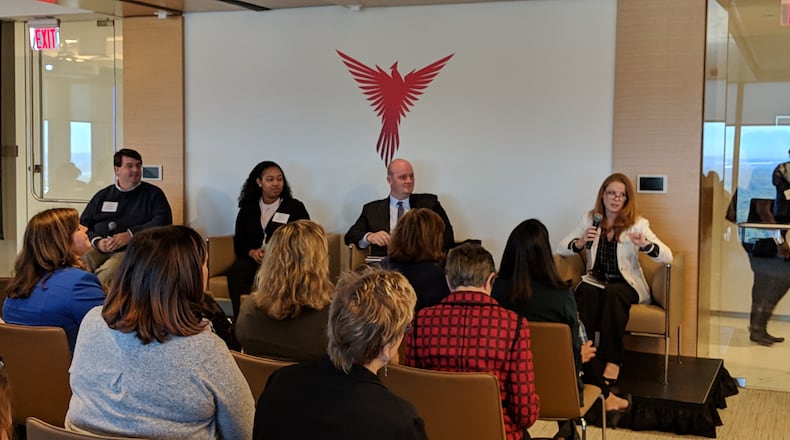A new survey tries to put a cost on the disruption to Georgia’s economy and tax base when parents miss work or leave the workforce altogether due to challenges with child care.
The bottom line comes from economist Tom Cunningham: $1.75 billion in lost economic activity and and $105 million in diminished state tax receipts.
Cunningham, a senior vice president with the Metro Atlanta Chamber, said that conservative estimate leaves out immeasurable consequences, like lost training time because a parent had to stay home to look after a child.
His calculations are based on a phone and internet survey of 400 parents commissioned by the Chamber and the Georgia Early Education Alliance for Ready Students.
The key findings: One in five parents quits work, school or training over child-care issues. More than one in three also misses up to a week of work or work training and nearly a quarter turn down a chance at college or workplace training.
The Chamber's report on the survey, with 17 pages of data and analysis, is called "Opportunities Lost: How Child Care Challenges Affect Georgia's Workforce and Economy."
The results were presented Oct. 20, along with a panel discussion that included a Federal Reserve Bank of Atlanta director, a technical college child-care official and a mom who had to find affordable, quality care for her son while attending college to improve her economic potential.
“I want to know that I’m not sacrificing his well-being for my financial gain,” she said.
The Chamber and the Alliance hope to spur a pubic discussion before lack of child care becomes an even bigger problem.
Panelist Stuart Andreason, director of the Center for Workforce and Economic Opportunity at the Atlanta Fed, predicted it will bloom into a larger problem as the over-sized millennial generation begins “family formation.”
High-value employees won’t feel the pinch: Companies such as silk-stocking law firms already provide child care to employees who could afford it anyway.
Some companies don’t even realize they have a problem.
Stephanie Blank, the Alliance board chair, said a couple of CEOs told her their employees didn’t have a child-care problem, but they had only asked the well-paid executives around them. She pushed back with one, and when he looked into it he discovered there was, indeed, a problem. A telecommunications company got the same initial response — no problem — from an employee survey, but doubted the answers and sent out more questions, she said. It turns out the employees were struggling but feared revealing it might harm their careers.
The cost of universal child care would easily rise into the hundreds of millions or even billions, but Mindy Binderman, Alliance executive director, said she hopes some kind of public-private partnership could someday address the issue.
Blank predicted that companies will eventually be unable to afford losing workers — especially highly educated workers — who stay home after having babies, if future generations are smaller. "We have a declining birth rate in this country," she said, "so the shortage of workers is only going to tighten."
About the Author
Keep Reading
The Latest
Featured



